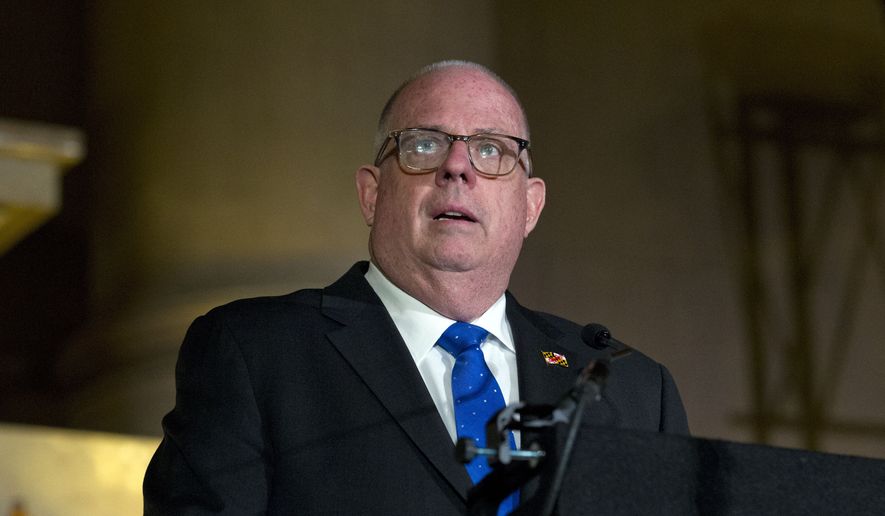BALTIMORE | A state attorney told a federal judge on Thursday that Maryland’s prohibition on state contractors boycotting Israel, in fact, is not about Israel at all.
Gov. Larry Hogan’s anti-Israel boycott executive order is about national origin discrimination only within the narrow context of state procurement, Adam Snyder, an attorney in the Maryland attorney general’s office, said in U.S. District Court in Baltimore in defense of the ban.
“[The ban] is limited to decisions not to deal with people or companies [because] that they are Israeli or reside in Israel because of their national origin,” Mr. Snyder told U.S. District Judge Catherine C. Blake.
During Thursday’s 75-minute hearing, Judge Blake seemed skeptical of that characterization.
“That is not at all clear [from the plain reading],” the judge said.
The Council on American — Islamic Relations (CAIR) is representing Syed Saqib Ali, an activist and former member of the Maryland House of Delegates who sued Mr. Hogan and Attorney General Brian Frosh in January over the ban. They argue that Mr. Hogan’s October 2017 executive order — “Prohibiting Discriminatory Boycotts of Israel in State Procurement” — is meant to punish national origin discrimination.
The executive order stipulates that no contractor can engage in a “boycott of Israel,” but that term has a separate definition that the judge called confusing.
Mr. Ali, a computer software independent contractor and outspoken critic of Israel’s occupation of Palestine, says the executive order unduly hurts his business and violates freedom of speech.
When Judge Blake asked if Mr. Ali would sign a state-required certification to not discriminate against nationalities in the course of his business, his attorney said the executive order’s intent cannot be separated from specific parts.
“He would not,” said Gadeir Abbas, a CAIR attorney representing Mr. Ali.
Mr. Abbas said the state was performing a bait-and-switch on its terminology, noting that when Mr. Hogan held a press conference to announce his executive order, “It was not with the level of nuance opposite counsel now paints.”
A global movement to boycott, divest and sanction (BDS) the Israeli government for its occupation of lands once held by Palestinians has been condemned as anti-Semitic by Israel supporters.
Maryland’s anti-BDS executive order is one of two dozen measures states have imposed across the U.S. Critics have charged that such measures violate constitutionally protected free speech.
Several anti-BDS bans have struck down in states such as Texas, Arizona and Kansas. But at least one, in Arkansas, has been upheld.
Mr. Snyder said Mr. Hogan’s order differs importantly from anti-BDS measures struck down by other courts because Maryland’s focuses on boycotts undertaken by contractors during the course of commercial activity.
At the conclusion of Thursday motions hearing, Judge Blake asked if there was any hope for settlement.
“If the governor rescinds his executive order,” Mr. Abbas said.
“Maybe parts of the resolution,” Judge Blake replied.
• Christopher Vondracek can be reached at cvondracek@washingtontimes.com.




Please read our comment policy before commenting.